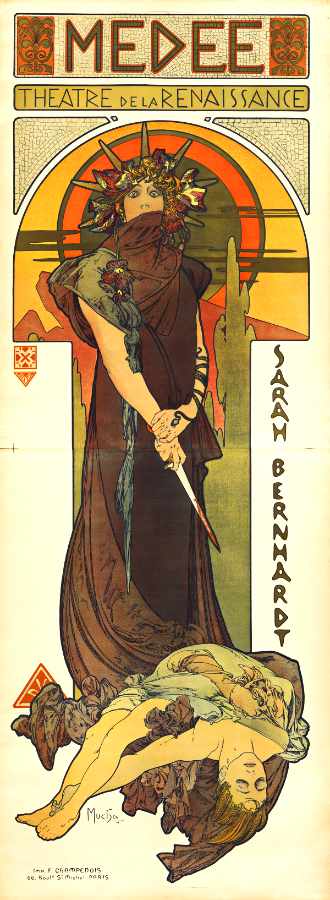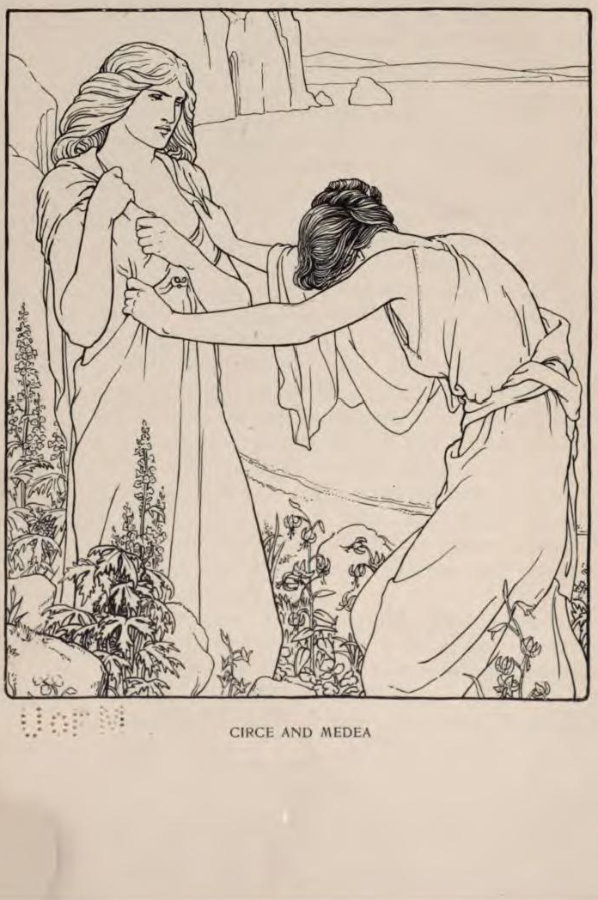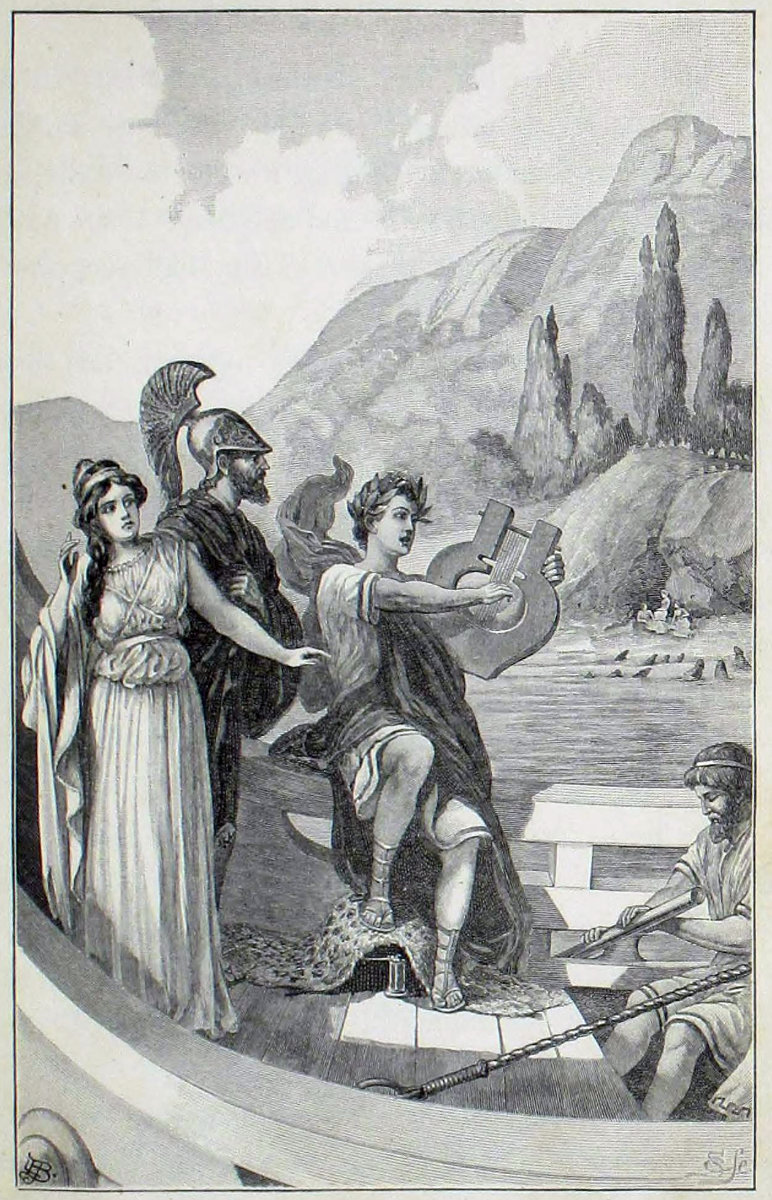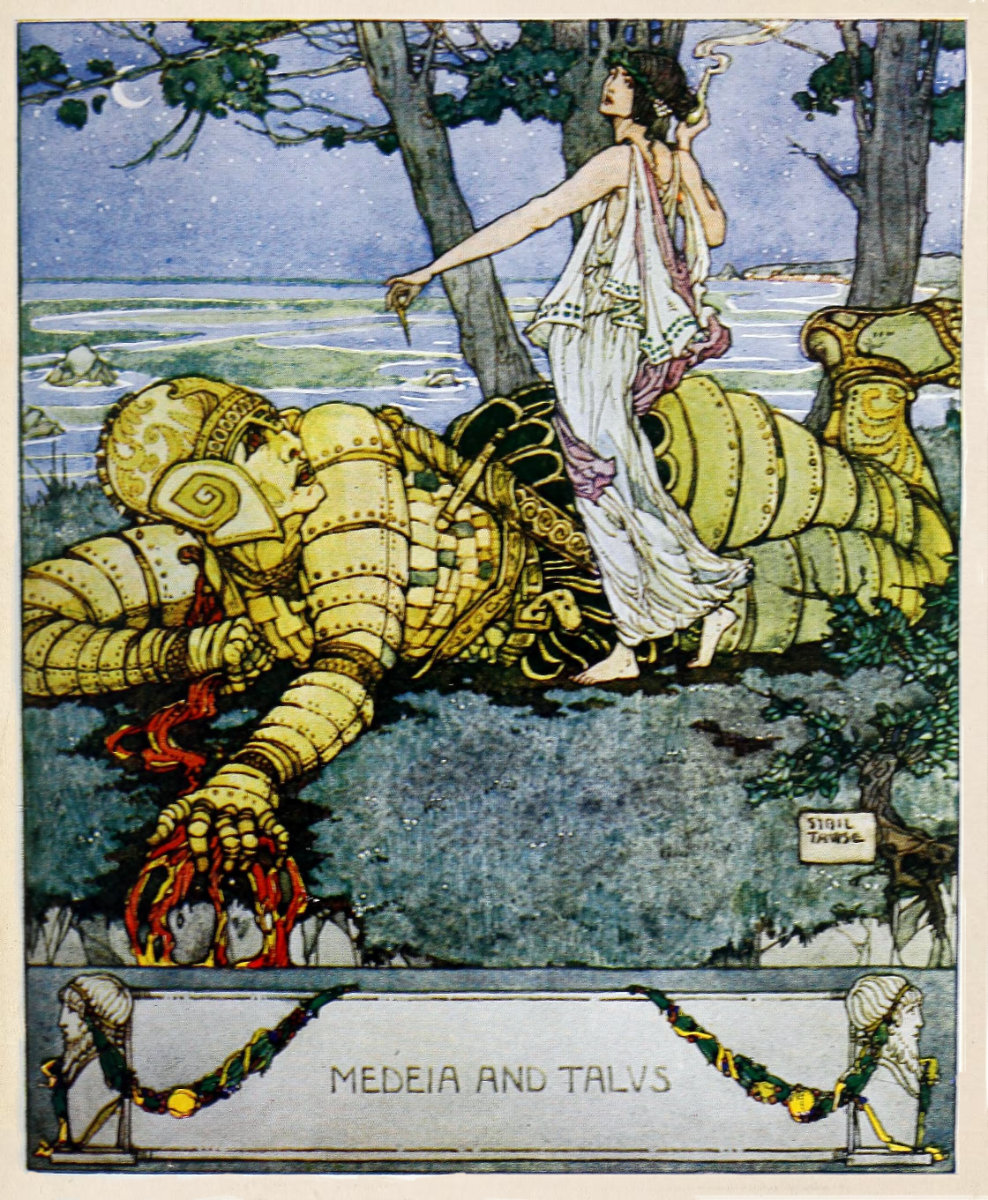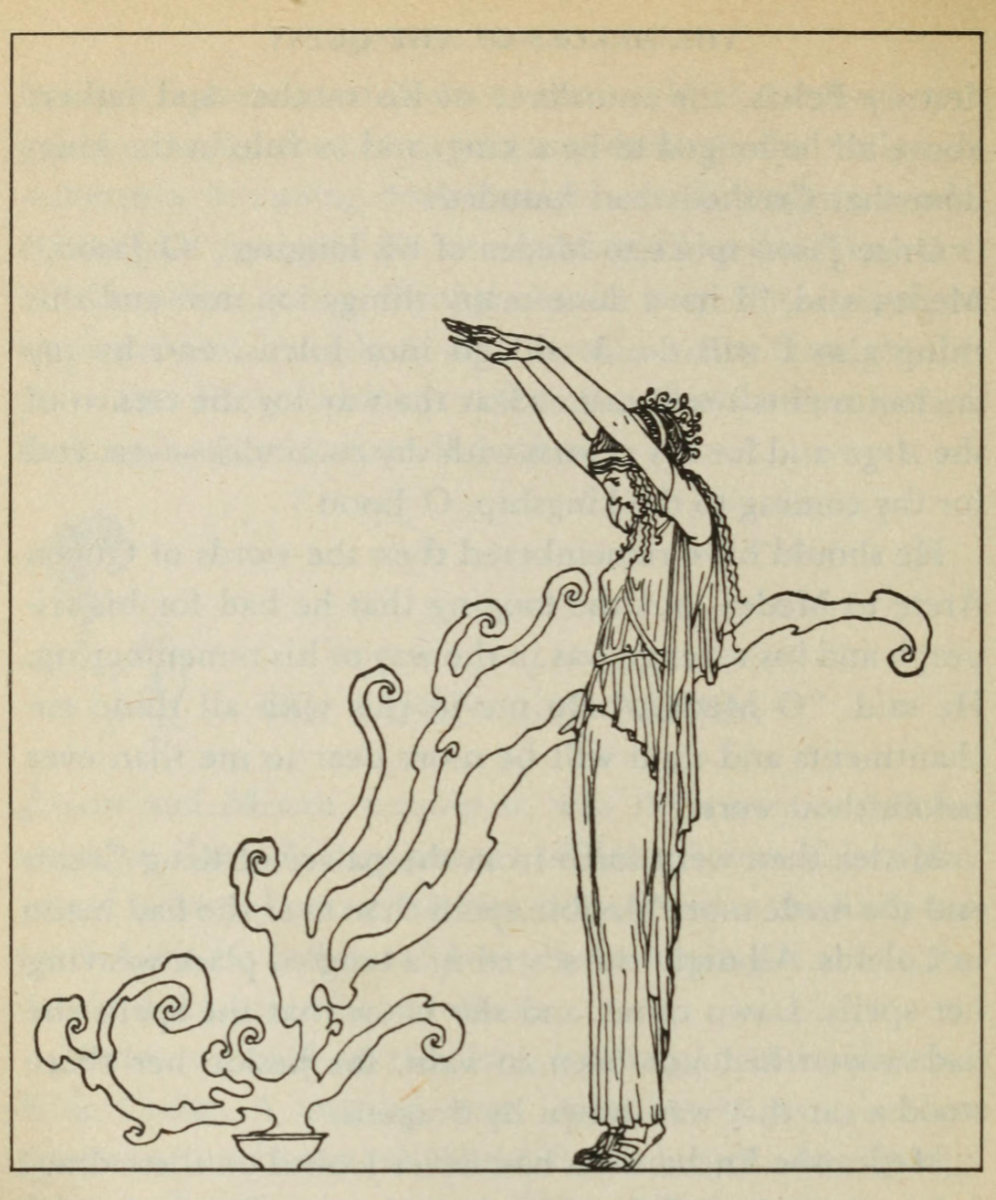In Greek mythology, Medea (perhaps implying “planner / schemer”) is the daughter of King Aeëtes of Colchis, a niece of Circe and the granddaughter of the sun god Helios. Medea figures in the myth of Jason and the Argonauts, appearing in Hesiod’s Theogony around 700 BCE, but best known from Euripides’s tragedy Medea and Apollonius of Rhodes’s epic Argonautica. Medea is known in most stories as a sorceress and is often depicted as a priestess of the goddess Hecate. Medea plays the archetypal role of helper-maiden, aiding Jason in his search for the Golden Fleece by using her magic to save his life out of love. Once he finished his quest, she abandons her native home of Colchis, and flees westwards with Jason, where they eventually settle in Corinth and get married. Euripides’s 5th-century BCE tragedy Medea, depicts the ending of her union with Jason, when after ten years of marriage, Jason abandons her to wed King Creon’s daughter Creusa. Medea and her sons by Jason are to be banished from Corinth. In revenge, she murders Creusa with poisoned gifts. Later, she murders her own sons by Jason before fleeing for Athens, where she eventually marries king Aegeus. What happens afterwards varies according to several accounts. Herodotus in his Histories mentions that she ended up leaving Athens and settling in the Iranian plateau among the Aryans, who subsequently changed their name to the Medes.
| Alias Medea |
| Real Names/Alt Names Medea |
| Characteristics Magician, Myths & Legends, Deity, Witch, Magic Caster, Bronze Age, Greek |
| Creators/Key Contributors Unknown |
| First Appearance Greek mythology |
| First Publisher ○ |
| Appearance List Literary: Lost Argonautica (lost, c. 8th–7th century BCE), Homer’s Odyssey (c. 8th century BCE) via mention of Circe, Hesiod’s Catalogue of Women (Ehoiai) (c. 7th–6th century BCE), Sophocles & Neophron’s lost Tragedies (5th century BCE), Euripides’ Medea (431 BCE), Apollonius of Rhodes’ Argonautica (c. 3rd century BCE), Pseudo-Apollodorus’ Library (Bibliotheca) (1st–2nd century CE), Ovid’s Heroides, Metamorphoses, and Tristia, Hyginus’ Fabulae 21–26, Pindar’s Pythian Odes, Seneca’s Medea, Diodorus Siculus’ Bibliotheca Historica, Gaius Valerius Flaccus’ Argonautica, Herodotus’ Histories, Hesiod’s Theogony, Plautus’ Pseudolus. Among many other works, also Cicero’s court case Pro Caelio, La Tavola Ritonda (15th-century), Geoffrey Chaucer’s The Legend of Good Women (1386), Pierre Corneille’s Médée (1635), Franz Grillparzer’s Das goldene Vliess (The Golden Fleece, 1822), Ernest Legouvé’s Médée (1855), William Morris’ Life and Death of Jason (1867), Jean Anouilh’s Médée (1946), and Robert Graves’ Hercules, My Shipmate (1945). Film: Jason and the Argonauts (1963). |
| Sample Read Tales of Ancient Greece [Internet Archive] |
| Description In Greek mythology, Medea (perhaps implying “planner / schemer”) is the daughter of King Aeëtes of Colchis, a niece of Circe and the granddaughter of the sun god Helios. Medea figures in the myth of Jason and the Argonauts, appearing in Hesiod’s Theogony around 700 BCE, but best known from Euripides’s tragedy Medea and Apollonius of Rhodes’s epic Argonautica. Medea is known in most stories as a sorceress and is often depicted as a priestess of the goddess Hecate. Medea plays the archetypal role of helper-maiden, aiding Jason in his search for the Golden Fleece by using her magic to save his life out of love. Once he finished his quest, she abandons her native home of Colchis, and flees westwards with Jason, where they eventually settle in Corinth and get married. Euripides’s 5th-century BCE tragedy Medea, depicts the ending of her union with Jason, when after ten years of marriage, Jason abandons her to wed King Creon’s daughter Creusa. Medea and her sons by Jason are to be banished from Corinth. In revenge, she murders Creusa with poisoned gifts. Later, she murders her own sons by Jason before fleeing for Athens, where she eventually marries king Aegeus. What happens afterwards varies according to several accounts. Herodotus in his Histories mentions that she ended up leaving Athens and settling in the Iranian plateau among the Aryans, who subsequently changed their name to the Medes. |
| Source Medea – Wikipedia |
